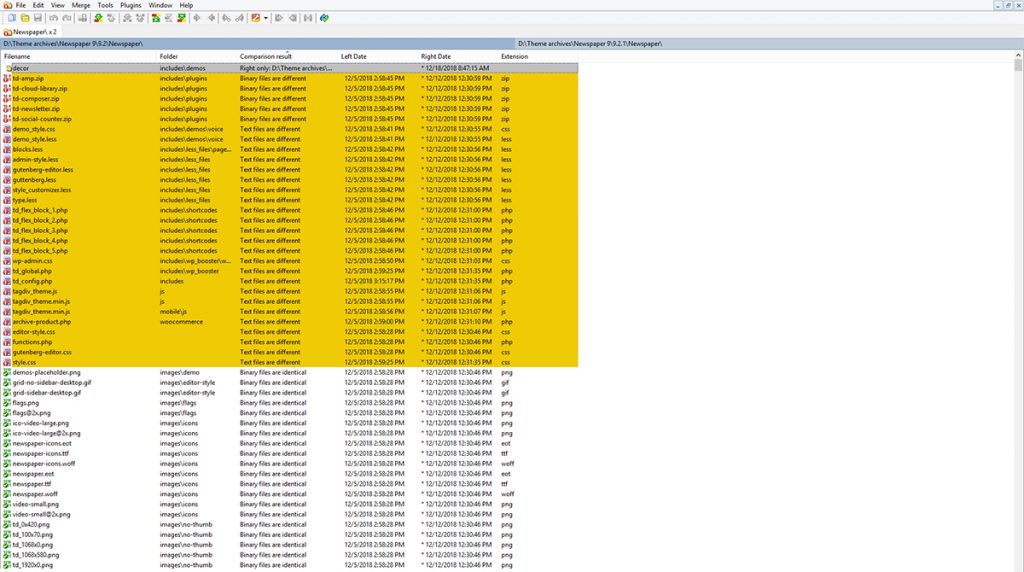
So there are two very important things for me:Ī) I have to see the NUMBER of differences between two file on folder view.ī) I have to order the files depending on there modification time (Windows). The file names are "nearly random" which can't be (easily) changed. file 4 ist the input to get file 5 and file 5 is the input to get file 6 and so on.

All files in one directory belong to a sequence of calculation steps showing the results file by file whereas i. One side containing calculation results and the other side containing calculation references. I do have to compare some thousand text files in two identically folder structures. Nothing special.I am using BC several years now and I was never missing any feature. Thursday, Decem12:09:32 - Thanks for the pointer Rory. You can also use it for merging which is where it gets really powerful.įorgot to mention, my post also has a reg file that will configure all this for you. How well does it handle resx and proj (xml) files?Ĭan it merge resx when two people have each added a resource entry or added a file to the proj? Wednesday, Decem4:06:38 - That is great, I didn't even know it could do that. You can then compare and optionally copy the files to the deployment directory. Point it at the development directory and the deployment directory and you can see which files have been modified. Since WinMerge can compare directories, it is also a good deployment tool. Now when you view a file history from Solution Explorer it will start up WinMerge.

Team Foundation Server does have a built in comparison and merge tool, but personally I find WinMerge to be far better.

If for anything, so I know myself when the time comes to do it all over again. Ok I know VS 2010 is the new toy to be seen playing around with, but as I have just recently got delivery of my new Windows 7 pc I thought I would document how to get WinMerge to work as a comparison tool with VS2008 Team System.


 0 kommentar(er)
0 kommentar(er)
